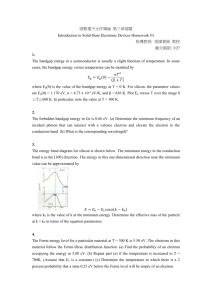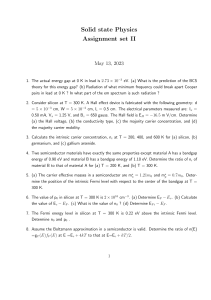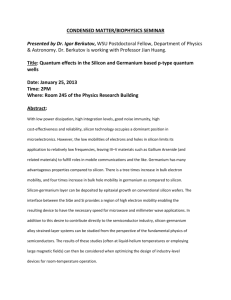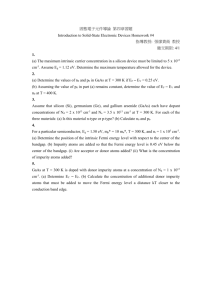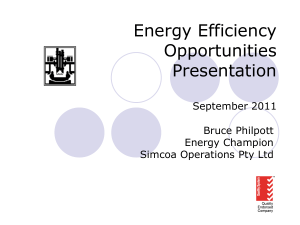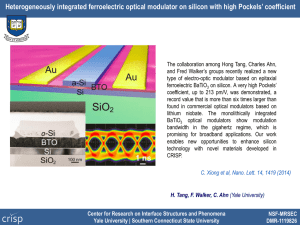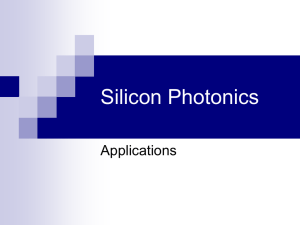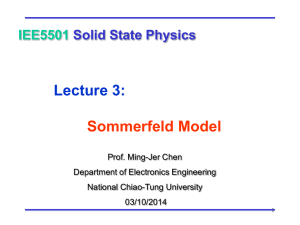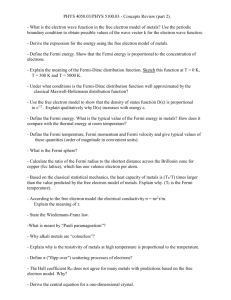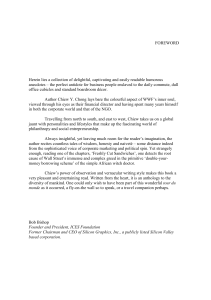Semiconductor Physics Problems: Carrier Concentration
advertisement
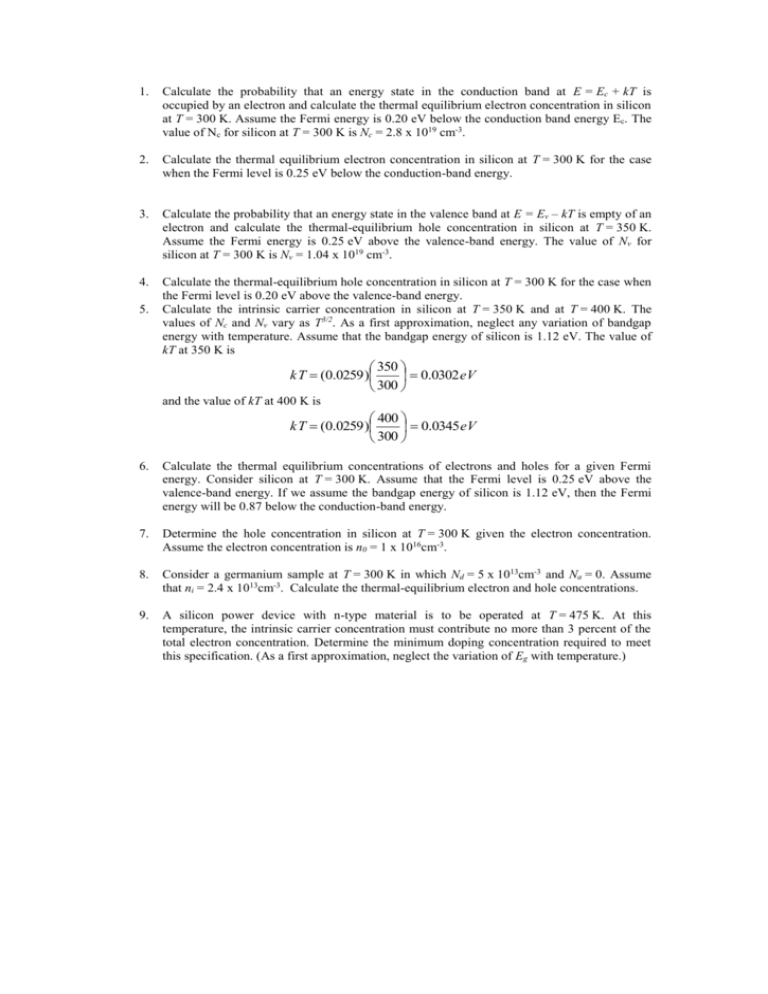
1. Calculate the probability that an energy state in the conduction band at E = Ec + kT is occupied by an electron and calculate the thermal equilibrium electron concentration in silicon at T = 300 K. Assume the Fermi energy is 0.20 eV below the conduction band energy Ec. The value of Nc for silicon at T = 300 K is Nc = 2.8 x 1019 cm-3. 2. Calculate the thermal equilibrium electron concentration in silicon at T = 300 K for the case when the Fermi level is 0.25 eV below the conduction-band energy. 3. Calculate the probability that an energy state in the valence band at E = Ev – kT is empty of an electron and calculate the thermal-equilibrium hole concentration in silicon at T = 350 K. Assume the Fermi energy is 0.25 eV above the valence-band energy. The value of Nv for silicon at T = 300 K is Nv = 1.04 x 1019 cm-3. 4. Calculate the thermal-equilibrium hole concentration in silicon at T = 300 K for the case when the Fermi level is 0.20 eV above the valence-band energy. Calculate the intrinsic carrier concentration in silicon at T = 350 K and at T = 400 K. The values of Nc and Nv vary as T3/2. As a first approximation, neglect any variation of bandgap energy with temperature. Assume that the bandgap energy of silicon is 1.12 eV. The value of kT at 350 K is 5. 350 kT (0.0259 ) 0.0302 eV 300 and the value of kT at 400 K is 400 kT (0.0259 ) 0.0345 eV 300 6. Calculate the thermal equilibrium concentrations of electrons and holes for a given Fermi energy. Consider silicon at T = 300 K. Assume that the Fermi level is 0.25 eV above the valence-band energy. If we assume the bandgap energy of silicon is 1.12 eV, then the Fermi energy will be 0.87 below the conduction-band energy. 7. Determine the hole concentration in silicon at T = 300 K given the electron concentration. Assume the electron concentration is n0 = 1 x 1016cm-3. 8. Consider a germanium sample at T = 300 K in which Nd = 5 x 1013cm-3 and Na = 0. Assume that ni = 2.4 x 1013cm-3. Calculate the thermal-equilibrium electron and hole concentrations. 9. A silicon power device with n-type material is to be operated at T = 475 K. At this temperature, the intrinsic carrier concentration must contribute no more than 3 percent of the total electron concentration. Determine the minimum doping concentration required to meet this specification. (As a first approximation, neglect the variation of Eg with temperature.)
